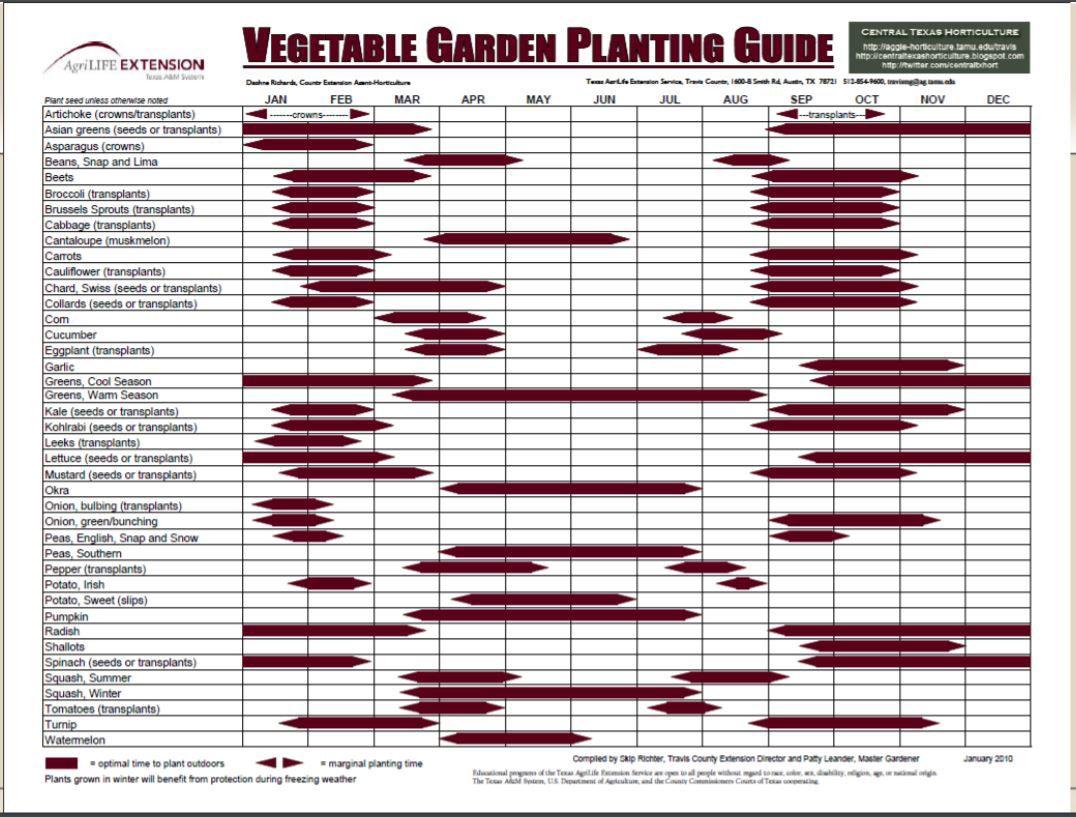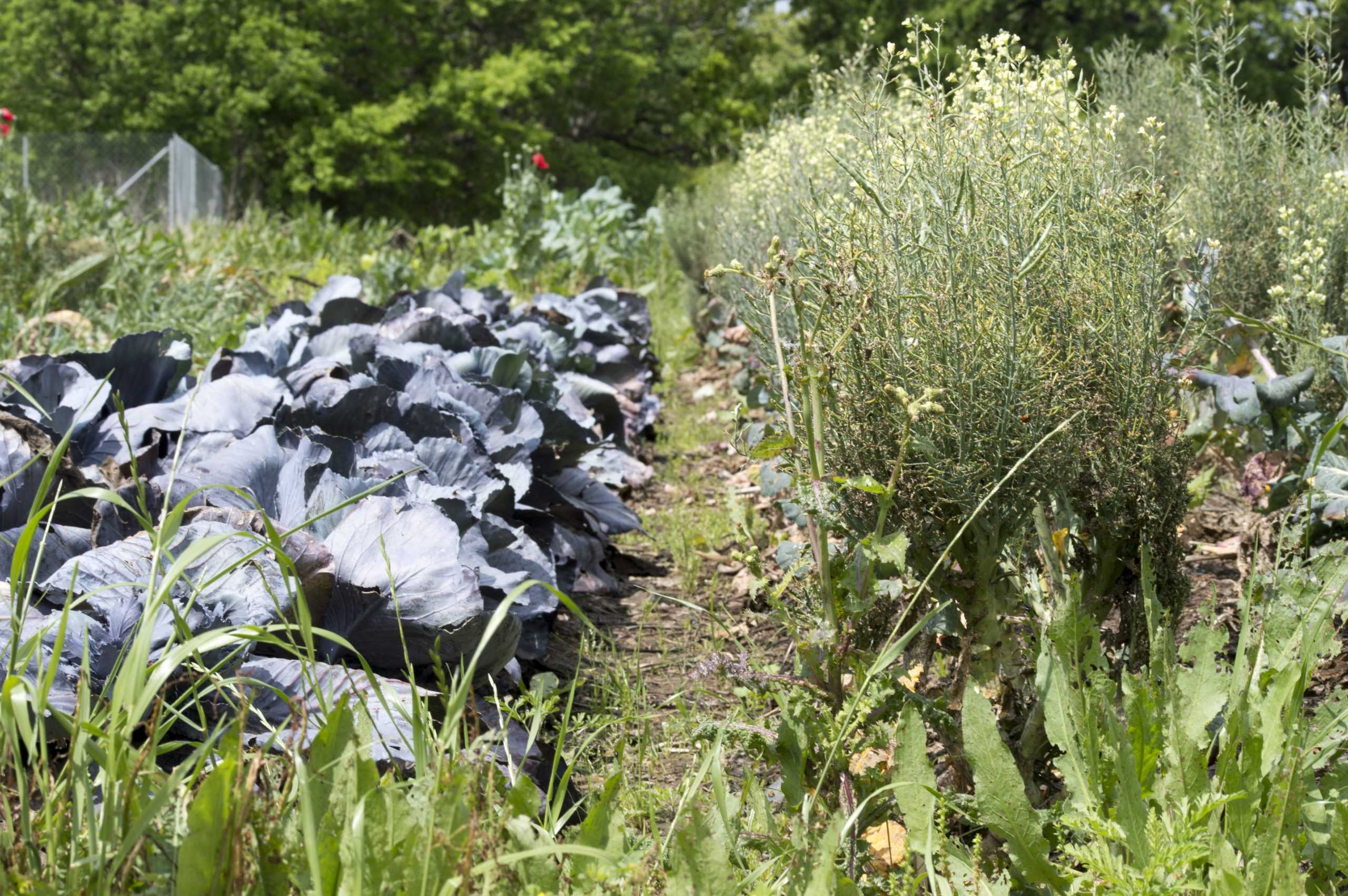Now that spring has arrived, it’s time to start preparing the spring garden. Here are some successful gardening tips from the experts at Texas A&M.
Three professors at Texas A&M University explained important facts a gardener should know before building a spring garden. Fruits and vegetables can be hard to grow in College Station due to unpredictable weather and alkaline soil.
While no experience is necessary to start a spring garden, someone who is trying to build one can benefit a lot by simply researching, according to Elizabeth Pierson, horticulture science professor.
“I always say, ‘Planning is just as crucial as doing,’” Pierson said. “It is important to do your research about gardening. However, gardening is all about trial and error.”
Tiny gardens can be beneficial for college students because it helps create an understanding of how the process works, according to Pierson.
“You could start small by making a container garden in your backyard,” Pierson said. “With the pressure of school, gardening could be a fun and creative outlet. Humorous mistakes are made when you have no or little experience, allowing you to grow and learn.”
When searching for what fruit and vegetables to plant, a gardener should consider a few important things, according to Patricia Klein, professor and associate head for the graduate program department of horticulture.
“You should look at the different vegetables, herbs or flowers that you want to grow,” Klein said. “Find out what the nutrient requirements are, when it is the right time to plant, days to maturity and what companion plants work and don’t work for that specific plant.”
It is important to know the quality of the environment a plant will be planted in, according to Joseph Masabni, extension vegetable specialist.
“You need to have nutritious organic soil,” Masabni said. “You have to have good irrigation for your plants. Remember, just because they look clean does not mean they actually are. Immediately spray them with something like an organic or conventional pesticide to sanitize them before they go into your garden and bring the disease with them.”
Masabni said how much time a person spends in their garden can greatly affect the outcome of the produce.
“I often tell people, ‘Your shadow is the key to success,’” Masabni said. “After they are planted, fertilize weekly, water regularly, spray pesticides about every 10 days to two weeks and watch them grow.”
It is important to be realistic when planning a garden, according to Pierson.
“Be realistic when it comes to planting seeds in your garden,” Pierson said. “The amount of time you spend in your garden depends on how large your garden is. Only plant what you are actually going to use.”
Knowing how long it will take before plants are ready to be harvested is important, according to Klein.
“Each harvest depends on the plant,” Klein said. “On the packet of seeds or the tag of the plant, it will tell you how many days to germination, how deep the seed needs to be planted, how far they need to be spaced and about how tall they are going to get. They all have different maturity rates.”
Making sure a garden has enough morning sun is important for the health of the plants, according to Klein.
“Eight hours of morning to early-afternoon sun would be preferred,” Klein said. “It is cooler in the morning. Also, getting sun early will dry off any water on the leaves. Typically when the plant leaves are wet, this is when you can build up more diseases.”
Having a source of water that is easy to access will make watering the plants much less of a hassle, according to Klein.
“You don’t want your plants to be wet all the time,” Klein said. “Let the water really soak in and then go back and check it. If you stick your finger knuckle deep in the soil and it is moist, then don’t give it any more water.”
Branching out into gardening as a first timer can be a very exciting experience, according to Klein.
“It’s not rocket science so don’t be afraid to try it,” Klein said. “You might love it. It will feel like an accomplishment when you are eating your own fresh fruits and vegetables.”
Aggie Horticulture is a useful source to find a lot of different information about a variety of plants plus tips on how to start a spring garden, according to Masabni.
“Aggie Horticulture includes helpful tips for your garden,” Masabni said. “It includes what plant is good for your location, harvest times and variety selections of different vegetables.”
For more information about what plants would be best for a spring garden, visit https://aggie-horticulture.tamu.edu/
Getting a garden going
April 5, 2018
0
Donate to The Battalion
$1765
$5000
Contributed
Our Goal
Your donation will support the student journalists of Texas A&M University - College Station. Your contribution will allow us to purchase equipment and cover our annual website hosting costs, in addition to paying freelance staffers for their work, travel costs for coverage and more!
More to Discover











